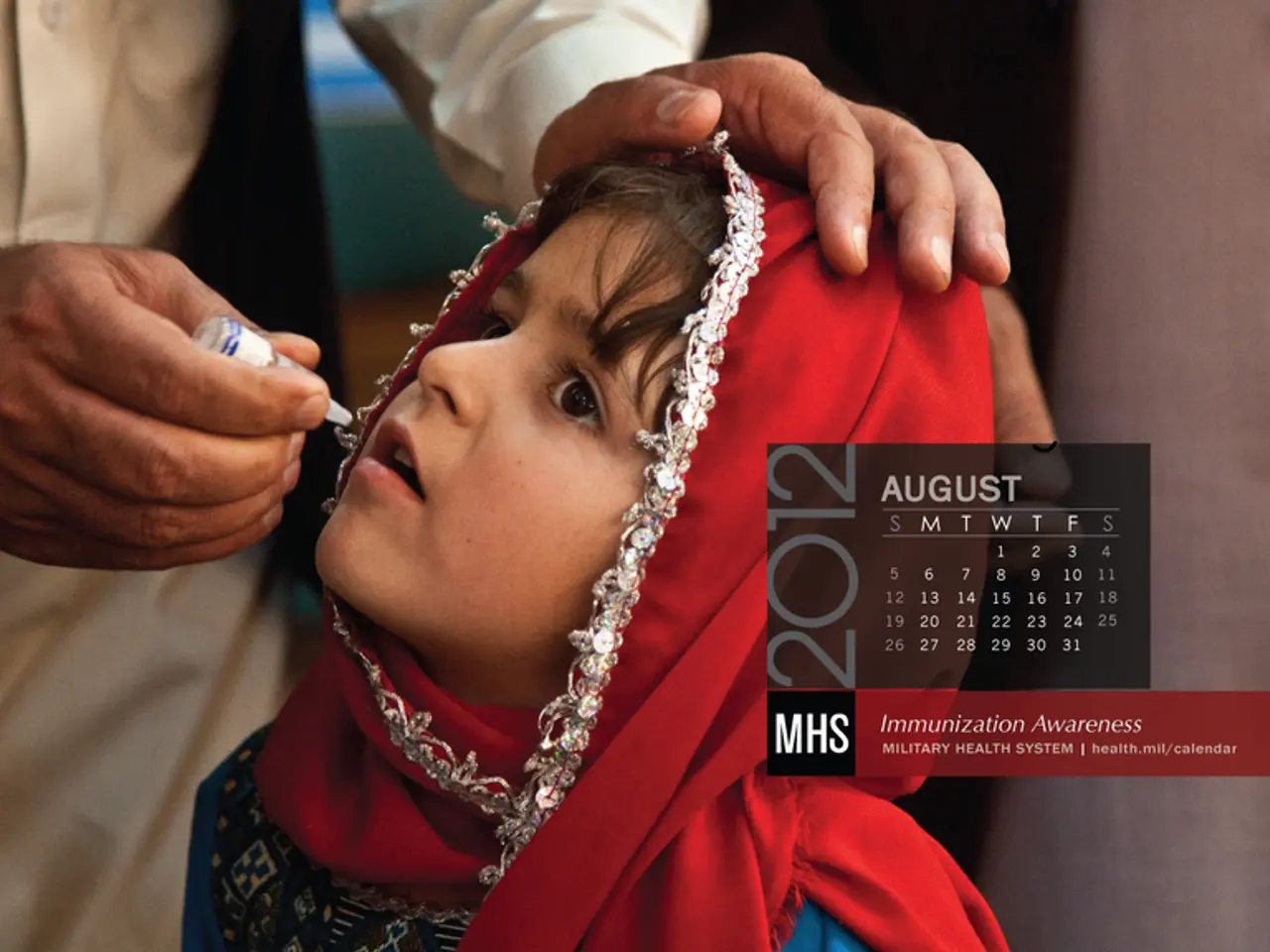Frequent Health Problems Encountered in Nigerian Premature Babies
Improving Preemie Health Outcomes in Nigeria: A Collaborative Approach
Preterm births are a significant concern in Nigeria, with approximately 773,600 preterm births occurring each year, making it one of the countries with the highest prevalence of preterm births globally. These preterm infants, or preemies, often face various health issues, such as low birth weight, respiratory distress, infections, and nutritional challenges.
To address these challenges, a collaborative effort from healthcare providers, policymakers, and the wider community is essential.
Antenatal Care Improvements
Providing pregnant women with multiple-micronutrient supplementation (MMS) can reduce the risk of preterm birth, low birth weight, and birth defects. MMS, which includes essential vitamins and minerals like iron, folic acid, zinc, and vitamin D, is a low-cost intervention costing about $2.60 per pregnancy and could substantially improve neonatal outcomes if widely implemented in low-resource settings like Nigeria.
Enhanced Neonatal Care
Strengthening neonatal intensive care units (NICUs) with trained staff and technologies to support respiratory function, infection control, and nutrition is critical. This includes the availability of synthetic lung surfactants and proper management protocols for respiratory distress and infections commonly seen in preemies.
Breastfeeding Support
Promoting exclusive breastfeeding and providing training and support for breastfeeding mothers can improve nutrition and reduce infections in preterm infants. Proper guidance can help manage common breastfeeding challenges such as foremilk-hindmilk imbalance, which affects infant digestion and comfort.
Community and Health Worker Education
Increasing awareness about maternal nutrition, pregnancy care, and newborn health among communities and frontline health workers can prevent complications that lead to prematurity and poor neonatal outcomes.
Addressing Systemic Challenges
Financial constraints pose a significant barrier to accessing specialized healthcare for preterm infants in Nigeria. Inadequate healthcare infrastructure and resources further compound the challenges in addressing health issues for preemies. Advocacy and awareness campaigns are essential to create a supportive environment for preemies and their families.
Preventing and Managing Common Health Issues
Early diagnosis and treatment are crucial for managing common health issues in Nigerian preemies. Treatment options for Respiratory Distress Syndrome (RDS) include administering surfactant, respiratory support with a ventilator, and oxygen therapy. Necrotizing Enterocolitis (NEC) is a serious gastrointestinal condition where the intestinal tissue undergoes inflammation and, in severe cases, necrosis. Management and prevention strategies for NEC include stopping oral feeds, providing intravenous nutrition, and using breast milk as a preventive measure. Regular eye exams are crucial for early detection of Retinopathy of Prematurity (ROP), and laser therapy or surgery may be recommended to prevent vision impairment.
Sepsis in preterm infants is caused by their underdeveloped immune systems and hospital-acquired infections. Prompt antibiotic treatment based on culture results is essential for managing sepsis, along with supportive care and monitoring for complications.
Strengthening Prenatal Care Services
Strengthening prenatal care services is crucial for improving preemie health outcomes in Nigeria. This includes increasing access to quality healthcare facilities, promoting early and regular prenatal check-ups, and educating pregnant women about preterm birth risks.
Addressing the health issues faced by Nigerian preemies is crucial for ensuring their long-term well-being and reducing the impact of common health issues faced by preterm babies. By implementing these strategies, we can work towards improving the health outcomes of preemies in Nigeria and ensuring a brighter future for these vulnerable infants.
[1] World Health Organization. (2020). Preterm birth. https://www.who.int/news-room/fact-sheets/detail/preterm-birth [2] Bhutta, Z. A., & Lawn, J. E. (2013). Multiple micronutrient supplementation for maternal and child health. The Cochrane Library, (4), Art. No. CD008198. https://doi.org/10.1002/14651858.CD008198.pub3 [3] World Health Organization. (2018). Nutrition for preterm infants. https://www.who.int/nutrition/topics/preterm_infant_nutrition/en/ [4] World Health Organization. (2018). Breastfeeding: An integral part of child survival. https://www.who.int/nutrition/publications/iyy/breastfeeding-integral-part-child-survival/en/
- Adequate antenatal care, providing multiple-micronutrient supplementation to pregnant women, can help reduce the risk of preterm birth, low birth weight, and birth defects.
- Universal access to essential vitamins and minerals like iron, folic acid, zinc, and vitamin D could substantially improve neonatal outcomes in low-resource settings.
- Strengthening neonatal intensive care units (NICUs) with trained staff and technologies is vital for supporting preemies with respiratory function, infection control, and nutrition needs.
- Synthetic lung surfactants and proper management protocols for respiratory distress and infections are crucial for optimal neonatal care.
- The promotion of exclusive breastfeeding and training for breastfeeding mothers can improve nutrition, reducing infections in preterm infants while managing common breastfeeding challenges.
- Frontline health workers should be educated about maternal nutrition, pregnancy care, and newborn health to prevent complications that lead to prematurity and poor neonatal outcomes.
- Financial constraints are a significant barrier to accessing specialized healthcare for preterm infants, and inadequate healthcare infrastructure further compounds these challenges.
- Advocacy and awareness campaigns can create a supportive environment for preemies and their families, addressing systemic issues that hinder healthcare access.
- Common health issues in Nigerian preemies like Respiratory Distress Syndrome (RDS) require early diagnosis, treatment with surfactant, ventilator, and oxygen therapy, and careful management strategies.
- Necrotizing Enterocolitis (NEC) requires stopping oral feeds, providing intravenous nutrition, and using breast milk as a preventive measure for its management and prevention.
- Regular eye exams and laser therapy or surgery for Retinopathy of Prematurity (ROP) can prevent vision impairment in preemies.
- Sepsis in preterm infants requires prompt antibiotic treatment, supportive care, and monitoring for complications.
- Strengthening prenatal care services through increased access to quality healthcare facilities, promoting early and regular prenatal check-ups, and educating pregnant women about preterm birth risks is essential for improved preemie health outcomes.
- To lower the impact of common health issues faced by preterm babies, it's essential to address the health issues faced by Nigerian preemies.
- The long-term well-being of preemies in Nigeria can be ensured by implementing these strategies aimed at improving their health outcomes.
- A collaborative approach between healthcare providers, policymakers, and the community is essential in improving preemie health outcomes in Nigeria.
- Improving preemie health outcomes can have a ripple effect on the health and wellness of the broader community, specifically kids and families.
- Providing early and adequate nutrition to preemies is vital for their overall health and growth.
- Optimal nutrition leads to better cardiovascular health for preemies as they grow older.
- The right balance between sleep and work, particularly for parents, is crucial for ensuring the well-being of preemies.
- Educating parents about the importance of a balanced diet, regular exercise, and stress management techniques during pregnancy and postpartum can promote overall health and well-being for both mother and baby.
- Improving family nutrition and lifestyle habits not only benefits preemies directly but also sets the foundation for good health and wellness in future generations.
- Breastfeeding encourages skin-to-skin contact, enhancing mental health for both mother and baby by releasing oxytocin and improving bonding.
- A well-balanced diet during pregnancy can reduce the risk of developing chronic diseases like diabetes and cancer in women and their babies.
- Managing prematurity-related health issues presents a significant challenge in the Nigerian healthcare system due to factors such as respiratory conditions and the prevalence of chronic diseases.
- The impact of environmental factors, such as climate change, on preemie health remains an under-researched area, but it is essential to understand how it may contribute to prematurity.
- Mental health issues like anxiety and depression among parents can negatively affect preemie health outcomes, and addressing these concerns is paramount for improving the health and well-being of preemies.
- Therapies and treatments for neurological disorders in preemies can vastly improve their cognitive development and long-term prognosis.
- Science and technology play a crucial role in advancing medical research and developing new treatments for various health conditions affecting preemies.
- Financial resources, through initiatives like Medicaid and Medicare, can help bridge the gap and ensure that preterm infants in Nigeria have access to quality healthcare resources.
- CBD has shown promising potential in managing various health conditions, including epilepsy and chronic pain, which may potentially improve the lives of some preemies.
- Adopting a lifestyle that emphasizes health and wellness, fitness, and exercise can positively impact a family's overall health, including the health of preemies, by reducing the risk of complications such as skin conditions, digestive health issues, and hearing or eye-related problems.




